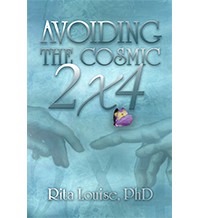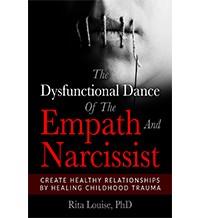Do All People Pleasers Suffer From The Fawn Response
In other articles we discussed the fight or flight response and the less talked about freeze response. According to psychotherapist and author, Pete Walker, there is another stress response that we may employ as protective armor in dangerous situations. It is called the fawn response. People, who come from abusive or dysfunctional families, who have unsuccessfully tried to respond to these situations by fighting, running away (flight) or freezing may find that by default, they have begun to fawn.
By definition, fawning refers to the flattery or affection displayed to gain a favor or advantage. Fawning is the opposite of the fight response. Instead of aggressively attempting to get out of a dangerous situation, fawn types attempt to avoid or minimize confrontation. They do this through what is referred to as ‘people pleasing’, where they bend over backward trying to be nice. It is not done to be considerate to the other individual but as a means of protecting themselves from additional trauma.
The Underlying Cause Of The Fawn Response
The fawn response, unlike our other stress responses, does not come built into us. It is developed and potentially honed into a defense mechanism in early childhood. The fawn response begins to emerge before the self develops, often times even before we learn to speak. The developing youngster learns early on that fawning, being compliant and helpful, is the only way to survive parental trauma.
Individuals who become fawners are usually the children of at least one narcissistic or abusive parent. The toddler often finds him or herself trapped with a caregiver who expects to be pleased and prioritized. If the child protests by using their fight or flight response they learn quickly that any objection can and will lead to even more frightening parental retaliation.
The Fawn Response And The Emergence Of People Pleasing
The child discovers that it is in their own best self interest to try a different strategy. Instead of fighting they preemptively strive to please their abuser by submitting to the abuser’s will whilst surrendering their own. This causes the child to put their personal feelings to the side. They ascertain that their wants, needs and desires are less important than their desire to avoid more abuse. They recognize that there is a modicum of safety in being helpful and compliant. The cost? They have to be willing to forfeit their rights and preferences or be broken – a submissive slave.
The child, over time, will learn to omit the word “No” from their vocabulary. This interferes with their ability to develop a healthy sense of self, self-care or assertiveness. Their focus is bound around being of use to others. This causes them to give up on having any kind of personal or emotional boundaries while at the same time giving up on their own needs.
The Adult Fawn Type
As an adult, the fawn type often has lost all sense of self. They fear the threat of punishment each and every time they want to exert themselves. Regardless of the situation, interrelations with others can feel like a war zone, where the individual is waiting for the next blow to come. Any hint of danger triggers servile behaviors where they will willingly give up their rights and on themselves.
The response pattern of taking care of others regardless of what they may want, need or desire is so deeply ingrained into their psyches that they often do not realize that they have given up so much. They find safety when they merge with the wishes and demands of others. This serves as the foundation for the development of codependency.
Is Codependency A Deeper Form Of The Fawn Response?
People who display codependent tendencies are experts at accommodating others’ needs and denying themselves. It is a disorder of assertiveness where the individual us unable to express their rights, needs, wants and desires. Having and maintaining boundaries is also often challenging for them. They are the ultimate people pleasers. Sadly, this behavioral pattern, established by the fawning response, causes these same individuals to be more vulnerable to emotional abuse and exploitation where they will attract toxic, abusive and narcissistic individuals into their lives.
Fawn types care for others to their own detriment. They have a strong desire to fit in and avoid conflict. They will willingly accept poor treatment and take abuse without protest. They have a hard time saying no and will often take on more responsibilities than they can handle. If they do happen to say no, they are plagued with the guilt and shame of having potentially hurt someone. These individuals may be emotionally triggered or suffer a flashback if they think about or try to assert themselves. This might cause them to dissociate and emotionally distance from their own feelings.
Have you ever considered that you might have a propensity to fawning and codependency? If you are a fawn type, you might feel uncomfortable when you are asked to give your opinion. You may also have a hard time identifying your feelings, so that when asked the question “what do you want to do” you may find yourself freezing or in an emotional tizzy.
Empaths And The Fawn Response
The fawn response may also play a role in developing someone’s sensitivity to the world around them, leading to the person to become an empath. Empaths, by definition, are able to detect another person’s feelings without any visible cues. Fawn types learn early on that it is in their best interest to anticipate the needs and desires of others in any given situation. They do this by monitoring and ‘feeling into’ or merging with other people’s state of mind and then responding and adapting as required.
Could the development of the gift of empathy and intuition be a direct result of the fawn response? While this is not a healthy form of empathy, many individuals who have traumatic background are also found to grow up to be highly sensitive people.
Are you a fawner? Help is right around the corner.
Taking action is the key to making positive changes in your life. This includes your health. So don’t wait! Take your next step right now and contact Dr. Rita to schedule a private consultation.
Medical Intuitive Reading – Intuitive Counseling – Energy Healing
© Copyright Rita Louise, Inc. – soulhealer.com. All rights reserved.




